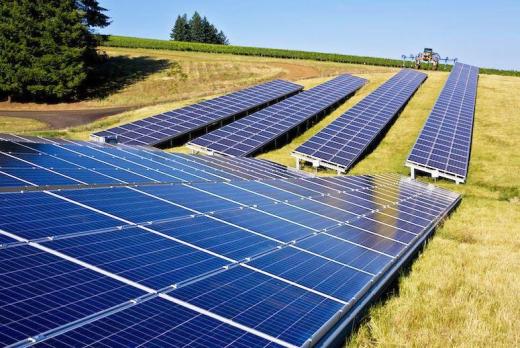
REA Attracts N5.8bn Private Investment with Renewable Energy
The Federal Government has announced progress in its drive to expand clean energy access across the country, revealing that the Rural Electrification Fund has attracted N5.8bn in private sector investment.
The programme managed by the Rural Electrification Agency is part of a broader strategy to stimulate rural development through sustainable energy solutions to underserved Nigerians.
The REA Managing Director, Abba Aliyu, disclosed this during the “REF Call 3 Grant Award Signing Ceremony and Access to Finance Workshop” held on Tuesday in Abuja.
At the ceremony, the electrification agency and about 58 companies signed agreements to provide solar mini-grids and solar home systems.
The REA MD said the event represents the agency’s renewed commitment to transforming lives through sustainable and inclusive energy access.
Represented by the Executive Director, Corporate Service, Ayoade Adegboyega, the REA boss said its interventions have enabled the deployment of 124 mini-grids, the installation of over 25,580 Solar Home Systems, and the empowerment of 18,013 micro, small, and medium enterprises.
He stated that the interventions culminated in the achievements of 16.6MW of renewable energy installed capacity and created over 26,000 jobs and averted 91,720 tons of CO2 emissions.
He said, “Today, we mark not just the beginning of a new chapter in the journey of the Rural Electrification Agency, but also a renewed commitment to transforming lives through sustainable and inclusive energy access. Since its inception, the Rural Electrification Fund has stood as a symbol of innovation, resilience, and measurable impact.
“Collectively, these interventions have enabled the deployment of over 124 mini-grids, the installation of over 25,580 solar home systems, and the empowerment of 18,013 micro, small, and medium enterprises, impacting 183 communities across all 36 states of the Federal Capital Territory.
“Beyond these numbers lies a deeper story of transformation, 16.6 MW of renewable energy capacity installed, over 26,000 jobs created, 91,720 tons of CO₂ emissions avoided, and N5.8 billion in private sector investment attracted.”
Aliyu noted that the interventions impacted 183 communities across all 36 states and the FCT.
Through REF Call 1, Call 2, and other flagship initiatives such as the Interconnected Mini-grid Acceleration Scheme, the Global Cleantech Innovation Programme, and the De-risking Sustainable Off-Grid Lighting Solutions, he said the agency consistently demonstrated the achievable vision with strategic execution.
He said that the commencement of REF Call 3, the agency’s mission went far beyond scaling capacities to about scaling impact and touching more lives.
This next phase, he said, “is designed to deepen penetration into underserved areas, catalyse productive use of energy, and foster greater empowerment of MSMEs, women-led businesses, and agricultural value chains. These achievements are not just data points.
“They represent lives empowered, classrooms illuminated, health centres revived, and dual economies set into motion.”
Aliyu congratulated the successful developers selected under the latest phase of the programme, urging them to approach the implementation with a renewed sense of urgency and commitment to excellence.
He warned against delays in project completion, stressing the importance of timely delivery in meeting national electrification targets.
He noted, “To our developers, I urge you to treat this phase with a renewed sense of urgency and excellence.
“Project timelines must be treated with the seriousness they deserve. The experience with past delays, particularly other programs such as IMAS, has taught us the critical importance of strict adherence to the one-year project cycle. Prolonged deployment timelines will no longer be tolerated.
“You are expected to meet all specified technical standards requirements, both for mini-grids and SHS components. Timely, transparent communication with the Agency is not optional. It is expected.
“We count on your professionalism to update the Agency properly on project milestones and potential red flags, enabling proactive support and timely resolution. To both new and existing developers, while we commend the efforts made so far, let me emphasise that this is a dynamic and rapidly evolving industry. As more players enter the field, innovation drives new benchmarks.”
In her overview of the Rural Electrification Fund and its programmess, the REF Director, Doris Uboh, emphasised the sustainability of the REF projects.
She sought adherence to the operational guidelines of REF. Uboh insisted that the companies must ensure the success of the plants.
She said, “Established by the Electricity Power Sector Reform Act of 2005 and revitalised under the Electricity Act of 2023, REF is a strategic financing arm of the Rural Electrification Agency, designed to unlock electricity access in rural and peri-urban areas of Nigeria. Our mission is very clear. One, it is to electrify the underserved and the unserved, to energise development and to build a future where no Nigerian is left in the dark.
“REF embodies the best of public-private partnerships, blending government commitments with private sector innovation to deliver sustainable decentralised energy solutions. We fund what matters. Mini-grids and solar home systems that provide 24-hour access to reliable electricity and impact the productive use of energy, as well as social and economic activities. We are leaving any segment of society behind, which is the most important factor, the sustainability plan that comes with our projects.”
